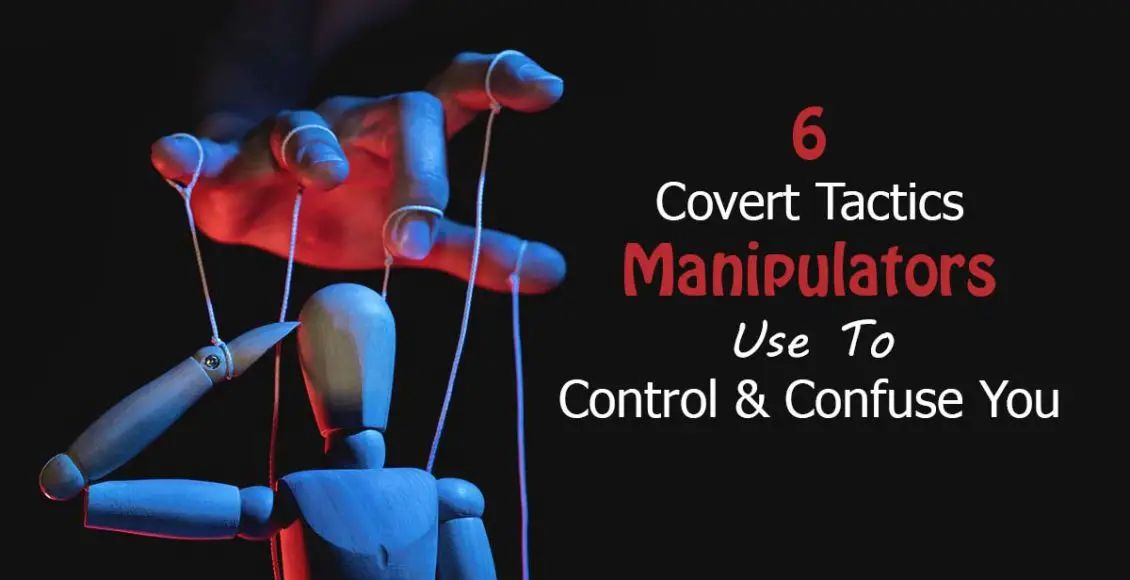Often, people who engage in manipulation do not do so to intentionally harm the other.
They might not even be aware that they’re being manipulative. It is what has worked for them before; it is what they know.
Well-functioning people seek dialogue where they can discuss, compromise, negotiate and respect each other’s differences, needs and feelings. A manipulator does everything he or she can to get what they want by pushing you into a corner, ignoring your boundaries, and making you feel afraid or guilty so that you give them what they ask for.
Their ultimate goal is to gain control over your thoughts, feelings, and actions. They want to get what they want no matter the cost.
The most commonly used tactics of manipulation include the following:
1. Victim playing
This is different from blaming the victim. Instead of blaming you, the “poor me” tactic forces you to feel sympathy and even guilt so you’ll do what they want. “I don’t know what I’ll do if you don’t help me out.” In extreme cases, the manipulator will even threaten suicide if you leave. They can also say things like “You don’t love me,” “What have I done for you to treat me this way?” or “Nobody cares about me.”
Should you fall prey to these tactics, you’ll get resentful, the relationship will suffer immensely, and the manipulation will just continue until everything falls apart. Guilt over someone else’s behavior or supposed suffering is guilt that has no basis in rationality.
2. Denial
This isn’t unconscious denial, like not realizing you’ve been the victim of abuse, have an addiction, or are running away from harsh truths. This is conscious denial to act as if you’ve forgotten about promises and agreements you made, as well as behavior. It also includes minimization and rationalization or excuses.
The manipulator acts as if you’re making an elephant out of a fly or rationalizes and excuses their actions to make you second-guess yourself or to extract sympathy from you.
3. Lying
People who’ve made a habit of lying sometimes do so when totally unnecessary. They aren’t lying because they’re afraid of repercussions, but to confuse you and get something out of you. Some will also put you on the defensive with accusations and other tactics of manipulation.
Lying may also take an indirect form through vagueness and/or omission of facts. For example, an adulterer might say they were held up at work or with a friend but not admit to having been in bed with someone else at the time.
4. Projection
Manipulators often tend to come up with ways to shift the blame for the nasty things they’ve done onto another. This is called projection. The truth is, we’re all guilty of it to some extent, but manipulators do it on a regular basis.
If a person close to you fits that description you must avoid projecting your own sense of compassion or empathy onto them and don’t take on any of their toxic projections either. Projecting your own conscience and value system onto such a person has the potential consequence of being met with more exploitation.
5. Intimidation
Intimidation is not always direct. A manipulator can intimidate with a look or tone and by saying things like: “You know that no one’s irreplaceable; right?,” “You’re not so young anymore;” or “You’ll see…” Another tactic is telling a story meant to elicit fear, such as: “I once almost killed a person for such a thing.”
In Conclusion
The manipulator’s tactics are destructive. If exposed to them for too long, you can get traumatized and your self-esteem can also suffer immensely. Becoming aware that you’re being manipulated is the first step out of this mess. And you may require the help of loved ones or even professionals to see things clearly. Carefully analyze the conversations you’re having with the potential manipulator and try to identify abuse and all the tactics they use. Also, you should try to not take the words of the manipulator personally and learn how to respond accordingly.
We hope this article was helpful to you. Let us know your thoughts on the topic by joining the conversation in the comments and please share if you’ve enjoyed the read.


